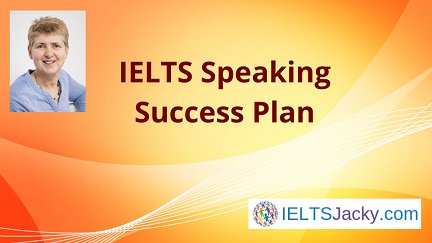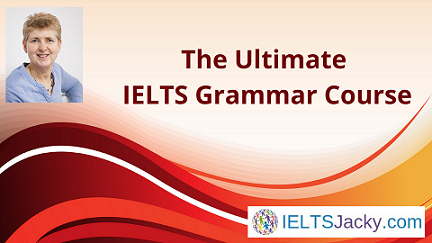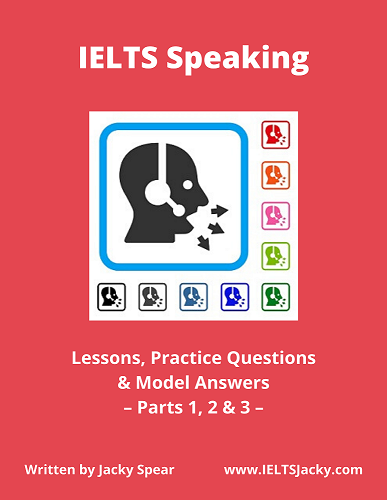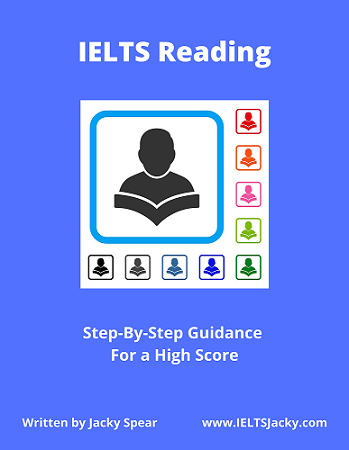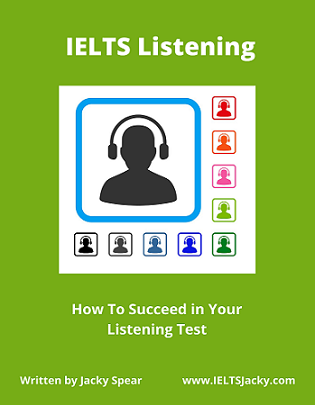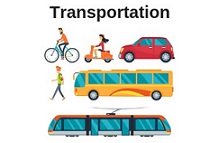IELTS Speaking Part 3
- How to Impress the Examiner -
To do well in IELTS Speaking Part 3, it’s important to understand 3 things:
- The purpose of Part 3
- What the examiner is looking for
- The key mistakes that lead to a low score
We’ll be covering all of these and plenty more on this page, including sample questions and answers.
Want to watch & listen to this section?
Click on this video.
First, the key facts about IELTS Speaking Part 3:
1) It is a two-way discussion with the
examiner lasting for 4-5 minutes.
2) You will be asked more questions about your Part 2 topic.
3) It gives you the opportunity to show a greater range of speaking skills.
4) The examiner’s questions will encourage you to express your thoughts, feelings and opinions.
5) You will only be assessed on your English language skills, not on the content of what you actually say.
IELTS Speaking Part 3 Questions
The questions in IELTS Speaking Part 3 will be more abstract than in Part 1, that is, they’ll be about ideas and concepts rather than about you. For example,
Friends
Part 1: What kind of things do you like to do with your friends?
Part 3: Why do you think children can make friends more easily than adults?
Money
Part 1: Would you like to be rich someday?
Part 3: It is said that happiness cannot be bought with money. Do you agree?
Travel
Part 1: What is your favourite type of holiday?
Part 3: Do you think travelling to another country can change the way people think?
 Can travelling to another country change the way people think?
Can travelling to another country change the way people think?
Level of difficulty
Expect some
of the questions to be challenging. The purpose of this final part of the
Speaking test is to push you to the limit of your ability. The examiner needs
to do this in order to accurately assess the full extent of your English
language skills.
You won’t be expected to give a long talk in answer to each question, but your answers will need to be longer than in Part 1. You can develop them with explanations and examples.
6 common types of questions
There are 6
common types of questions in Part 3. These aren’t the only possible types, but
most questions will fall into one of these categories.
Before I give you some examples, I want to make you aware of some key mistakes that lead to a low score in IELTS Speaking Part 3 and explain why people often get a lower score than they expect or are capable of achieving.
There are 4 key reasons:
- Their answers are too short.
- They get stressed over difficult questions.
- They don’t listen carefully to the question.
- They don’t fully understand the question.
Their answers are too short
Know that you need to give extended answers. Don’t try to rush through this last part of the test because it’s challenging and you’re dying to get to the end. If you give short answers, the examiner will just keep asking you more questions until the time is up. It’s far better to answer each one properly and not have to answer so many of them.
They get stressed over difficult questions
Accept that you’ll be getting difficult questions and deal with them appropriately. I’ll be showing you how very soon.
They don’t listen carefully to the question
It’s so easy to just hear one or two key words in the question and think you know what’s being asked. Very often you’ll be wrong. In an exam, that’s a serious mistake to make because you probably won’t answer the question appropriately, so listen carefully before answering.
They don’t fully understand the question
If there’s just one key word in the question that you don’t understand, you aren’t going to be able to answer the question properly.
What most candidates don’t know is that you’re allowed to ask one or two questions during IELTS Speaking Part 3 if you really need to.
There are just three things you can ask:
- Can you repeat the question please? (when you want to hear the question again)
- Can you explain what you mean? (when you want the examiner to rephrase the question)
- Can you explain what the word ___ means please? (when you want the examiner to explain a specific word)
These are the only questions you’re allowed to ask and only do so if absolutely necessary. Ask no more than two questions in total.
Asking the examiner a couple of questions won’t affect your score but do keep it to two and don’t ask them anything else.
 You can ask up to two questions.
You can ask up to two questions.
6 Common Types of
Questions for
IELTS Speaking Part 3
As I’ve already mentioned, there are 6 common types of questions in IELTS Speaking Part 3. It is very important to understand what they are. Here’s why?
You’ll know from the type of question the examiner asks, which grammatical structures you should be using and what they are trying to assess.
You won’t get asked every type of question. Most of the examiner’s questions will follow-up on what you said in your previous answer, but they will mix it up so that you get a good variety of types.
Want to watch & listen to this section? Click on this video.
Common types
of question for IELTS Speaking Part 3:
1) Opinion
2) Hypothetical
3) Compare and Contrast
4) Change
5) Future
6) Benefits
1) Opinion
Being asked to give your opinion is one of the most straightforward question forms.
Read this question and answer. The words that I've underlined show that Mustafa is giving his opinion rather than stating facts?
Questions: Do you think people in your country are less healthy than they used to be?
Mustafa: Personally, I think that the health of many
people is worse than it used to be. This is mainly due to obesity caused by an
unhealthy diet. Being overweight can cause diabetes, heart problems and many
other serious health issues. A high percentage of the population don’t take
regular exercise which is another factor that contributes to poor health.
There have, of course, been major improvements in health care in recent years. This means that more illnesses and diseases can now be cured which has had a positive effect on health in general. However, in my opinion, many people in my country are less healthy these days because of unhealthy lifestyles.
There are many other phrases you could use to give your opinion, such as:
- In my experience…
- As far as I'm concerned…
- Speaking for myself…
- I'd say that…
- I believe that…
- In my view…
- If you ask me…
- I feel sure that…
2) Hypothetical questions
These are about ‘unreal’ or imaginary situations. For example:
Question: If tourists stopped visiting your area, what effect would it have on the economy?
To answer a hypothetical question, you’ll need to use the conditional. The clue is that little word ‘if’.
Read Yu Yan’s answer to the question. Can you identify the conditional clauses? I’ve underlined them to help you.
Yu Yan: If tourists stopped visiting
the beautiful beaches where I live, it would have a terrible impact on
our local economy. Tourism is our most important industry and many people run
hotels and guest houses or work in popular restaurants and cafés. Lots of
shops sell beachwear and souvenirs so these would soon go out of business. Also,
there would not be enough other jobs in the area for all the people involved in
tourism to find work.
So, I have to say that it would have a disastrous effect on the economy in my area if tourists no longer came here on holiday.
3) Compare and Contrast
The third type of question common in IELTS Speaking Part 3 is ‘compare and contrast’. For example,
Question: What are the advantages of living in a city compared to living in the countryside?
In this answer, Jamilla uses three different words or phrases to show that she is comparing two things. I have underlined them so you can easily identify them.
Jamilla: One of the best things about living in a city is the wide range of leisure activities, from sports to theatres and museums, unlike rural areas where there are few facilities like this. City shops sell everything you could want whereas there is a limited choice in country markets and many goods are unavailable.
It’s also easier to find work and accommodation in cities and the public transport system is better so you can get around without any problems. In contrast, people living in the countryside often have to walk everywhere or get a bicycle as there are few buses and no taxis. The roads are also bad.
There are many other words and phrases that are appropriate to use for answering this type of question. Here are a few of them:
Compare
- in the same way
- similarly
- likewise
- comparatively
- compared with
Contrast
- conversely
- nevertheless
- otherwise
- on the other hand
 What are the advantages of living in a city?
What are the advantages of living in a city?
4) Change
Questions about change ask you to talk about the past and the present.
For example,
Question: How has education changed since your parents were children?
Read Kwame’s answer and notice the tenses he uses.
Kwame: The biggest difference
is that education is now compulsory for all children up to the age of eleven and many
stay on into senior school. My father only went to school for a few years as he
had to work in the fields and look after the cattle full-time from the age of
eight. My mother didn’t go to school at all as she was needed at home to help
cook, clean and mind her younger brothers and sisters. Education wasn’t
considered important for girls back then.
What is taught in schools hasn’t changed much but in towns and cities the children use computers and can learn all about the world via the internet. In small villages, like the one I come from, there are still very few teaching resources and certainly no computers. So some changes in education depend on where you live.
5) The Future
You may also get a question asking you to speculate about the future. For example,
Question: Do you think that everyone in the world will have access to clean water in the future?
Such questions are obviously designed to tests your ability to use future structures. This is another type of question asking for an opinion but this time you will need to answer using the future tense.
Read Cheung’s answer and note where he uses the future tense.
Cheung: That’s a really
difficult question to answer because I believe that we will have the
technology to provide clean water for everyone, wherever they live, but there
are other factors to consider that are less easy to predict.
Cost is the biggest issue as it is mostly poor communities who lack clean water so it will be necessary for wealthier communities and nations to fund boreholes and other means of providing decontaminated drinking water.
Warfare is another huge problem in many areas. It destroys resources and livelihoods and keeps people poor and unable to improve basic facilities such as access to fresh water. Sadly I think this will always be an issue in one place or another.
6) Benefits
Our sixth and final type of question common in IELTS Speaking Part 3 asks about benefits. It could be the benefits of a particular situation or the benefits of one thing over another. For example,
Question: What do you think are the benefits of hobbies?
What type of words does Gabriele use to give her answer structure?
Gabriele: I believe that there are many great benefits to be gained from having a hobby. First, taking up a leisure activity is an excellent way of making new friends, especially when you move to a new area, as you meet like-minded people who share your interest.
Second, having an interesting pastime is good for mental health as it can help to relieve stress and often improves work-life balance.
Finally, many leisure pursuits bring new challenges and the chance to learn new skills, which are both added benefits.
Gabriele uses sequence words to structure her answer – first, second, finally. Well structured answers get high scores and this is a simple but effective way of organising your ideas.
There are many other words that you could use to answer this type of question. Here are a few common ones:
then next furthermore in addition also likewise last
Using Examples
Where appropriate, give examples in your answers. It can be an easy way to develop IELTS Speaking Part 3 answers. You can do this for many different types of question.
Giving an illustration can also be a simple way of introducing a different tense into your answer, as it could be something that happened in the past, is a current situation, or something that will happen in the future, although you won’t have time to go into much detail.
Read Aisha’s answer to the following question, to see how she builds her answer around the example.
Question: How do you think children can be encouraged to read more?
Aisha: Giving children easy access to
exciting books in their schools and in local libraries is perhaps the most
obvious thing to do. However, I believe that the best way to motivate them to
read more is to invite well-known children’s authors into schools to discuss their
stories and read to the kids.
This is what turned my daughter into an eager reader. A lady called Jacqueline Wilson recently came to her school and read one of her fun stories about growing up and facing childhood challenges. My daughter talked about it for days and is now reading all of Jacqueline Wilson’s books and is even writing her own stories.
I know from talking to other parents that the visit encouraged other children in the school to read more as well. I think more schools should do this.
 How do you think children can be encouraged to read more?
How do you think children can be encouraged to read more?
Preparing for IELTS Speaking Part 3
The most
challenging aspect of IELTS Speaking Part 3 is the abstract nature of the
questions.
Even if you’ve had the opportunity to talk extensively with native English speakers or high-level learners, you’re most likely to have chatted about yourself, and your interests and experiences. You almost certainly won’t have spent much, if any, time discussing abstract ideas.
You need to prepare yourself by practising. This will get you used to developing these types of answers quickly and effectively.
There are 180 IELTS Speaking Part 3 practise questions on my Free IELTS Speaking Practise Cards. They cover 30 different topics.
Click the link below to download a PDF of them.
You’ll find more sample questions on the topic vocabulary pages listed on the sidebar. ààà
Get a friend to ask you several questions one after another at the same pace as the examiner will in the test itself. You can do it by yourself if you really don’t have anyone to help you.
You’ll soon get used to thinking quickly and the answers will begin to flow more naturally without you having to overthink either the content of your answers or the correct language to use.
Like this page?
More IELTS Speaking Pages
You'll find more help to answer IELTS Speaking Part 3 questions, and to get a high score for all parts of the Speaking test, on these pages:
IELTS Speaking Test: Know the format & understand what you’ll be assessed on. Discover the main reason for low scores & how to avoid this big mistake.
IELTS Speaking Tips: 9 top tips to increase your chances of getting a high score
IELTS Speaking Topics: Discover 40+ common subject areas for the IELTS Speaking Test.
IELTS Speaking Questions – Download 30 full mock tests (30 practise cards on 30 topics – 330 questions altogether).
IELTS Speaking Part 1 – 7 simple methods for developing your answers, with examples.
Part 2
IELTS Speaking Part 2: Test format, understanding cue cards & 5 test mistakes to avoid.
Part 2 Planning Strategy - Method 1: ‘question prompt’ + planning notes & sample answers.
Part 2 Planning Strategy - Method 2: ‘brainstorming’ + planning notes & sample answers.
Part 2 Planning Strategy - Method 3: ‘the 5 senses’ planning notes & sample answers.
How to Begin a Part 2 Talk – Plus, top tips for gaining extra marks.
IELTS Speaking Practice: Massively improve your speaking skills by learning how to think in English.



